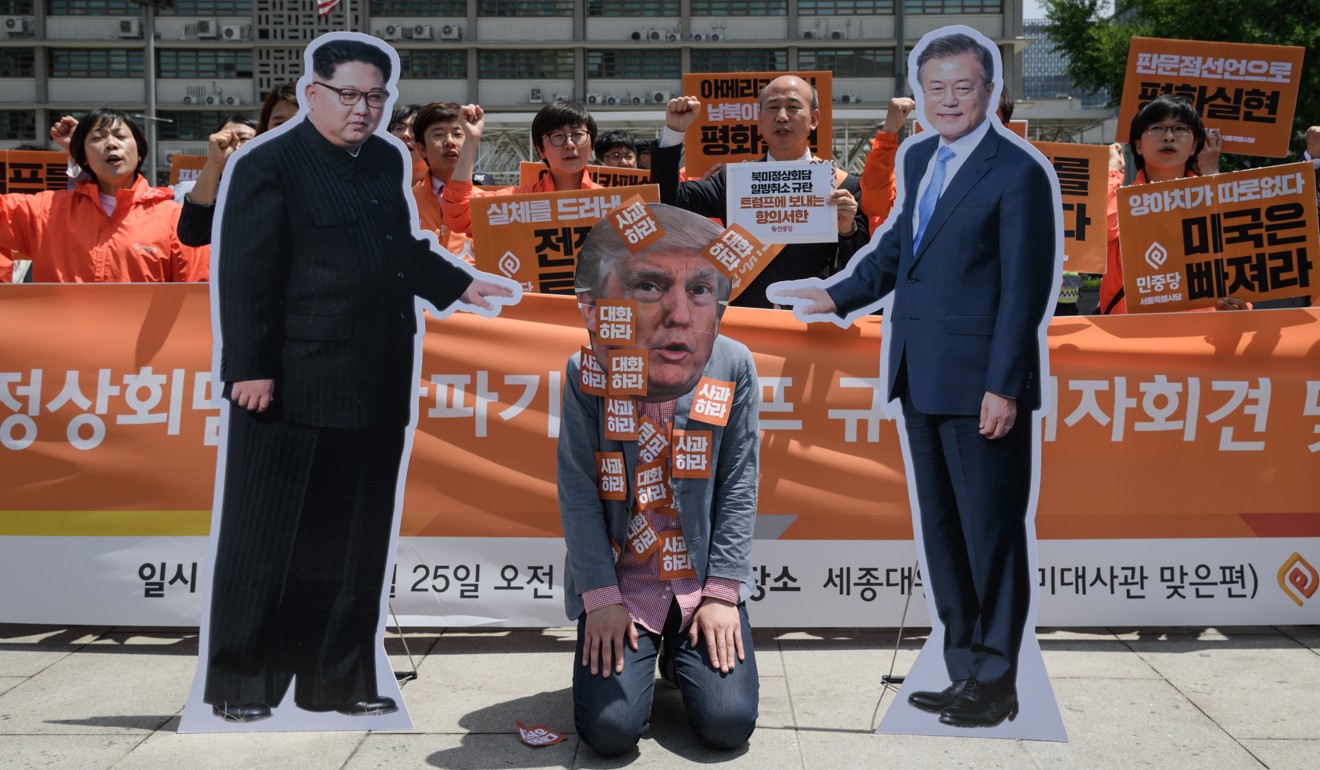The Washington Post
April 24, 2005
Barriers Are Cracking, but Parliaments Still Don’t Reflect Changing Populaces
PARIS — Mariam Osman Sherifay is a Muslim woman, born in Egypt. Coskun Coruz left his native Turkey as a child. And Paul Boateng is a soft-spoken and dapper lawyer, a black man who spent most of his childhood in Ghana.
Today Sherifay lives in Sweden, Coruz lives in the Netherlands and Boateng lives in Britain. The three have never met. But together they are quiet trailblazers of a sort, members of one of the most exclusive groups in Europe — minority lawmakers elected to the parliaments in their respective countries.
They say they do not consider themselves pioneers, representatives of their groups or role models. But they, and a handful of others, are chipping away at one of the most durable color barriers in a fast-changing Europe, the doors to legislative chambers.
“I, in my life, have tried to break down barriers,” said Boateng, chief secretary to the treasury, who in 2002 became Britain’s first black cabinet minister. “I am black and proud of my ethnic origins.” But he added, “I do not regard myself as a black member of Parliament. . . . I think it’s very important that all young people feel they can aspire to a life in public service.”
In Western Europe, decades of immigration from the Middle East, sub-Saharan Africa, Asia and the Caribbean have created large black and Muslim populations — at least 10 percent in France, Britain and the Netherlands, and 7 percent in Sweden. The newcomers and their children are changing the faces of some of the largest cities; Islam is Europe’s second-largest religion.
Europe has other migrants as well — Russian Jews have settled in Germany and refugees from the former Yugoslavia have found homes across Western Europe. These people frequently have cultures and racial characteristics similar to those of the people in their new countries, and assimilation has often been relatively smooth.
The story has been different for Africans and Middle Eastern Muslims. While they have taken to Europe’s soccer fields and increasingly are helping to define the arts and popular culture, they have remained largely invisible in elective government.
To change that, many minority politicians in Europe say they look for inspiration from the United States, where minorities have a larger presence in national and local elective offices. There are differences in history and electoral systems — the European systems tend to make it difficult for minority neighborhoods to elect minority representatives — but many minority politicians say the U.S. experience suggests that taking their place in European government will be a long process.
Blacks were present in the United States as slaves at its founding, and were first elected to the U.S. Congress in the 1870s. But the barriers really began to crumble in the 1960s, with the Voting Rights Act of 1965, the consolidation of black political power in cities and the formation of the Congressional Black Caucus in 1969. The caucus has 43 members, and blacks make up about 10 percent of the 435-member House, just below their 13 percent level in the population.
Soaring Immigration
Britain’s contemporary immigration wave began after World War II, with the arrival of large numbers of Jamaican workers. Elsewhere in Europe, the trend dates to the 1960s, when Germany and the Netherlands began admitting large numbers of Turks and Moroccans as workers. At the same time, Moroccans and Algerians came to France in force.
Strict citizenship rules in some countries have often prevented the foreign-born from becoming citizens or being eligible to run for office. In Germany, residents with foreign parents are still referred to as auslander, “outsiders.” But even in places where gaining citizenship is easier — such as Sweden and the Netherlands — few of the newcomers and their locally born children have become active in politics until recently.
The starkest case is France, a country of about 60 million people with about 6 million North African Muslims and an estimated 2.5 million blacks from south of the Sahara desert — an estimate, because France officially does not keep statistics by race. France prides itself as a country of egalite, or equality, where discrimination, officially at least, does not exist. But of 555 deputies representing districts in continental France, none is black or Muslim. (Minorities do hold some of the 22 seats representing France’s overseas territories.)
“If I were a member of Parliament and white and looking at this every day, clearly this would be a point of concern,” said Patrick Lozes, a black pharmacist and activist who is trying to increase black political representation in France. “How can they live and work and vote on laws and see the Parliament is clearly not representative?”
Germany, with 82 million people, is home to 3.5 million Muslims, mostly Turkish citizens and Germans of Turkish descent. But among the 603 members of the German Parliament, or Bundestag, there are two people of Turkish descent, Ekin Deligöz, a Green Party member who received German citizenship in 1997, and Lale Akguen of the ruling Social Democrats, who has lived in Germany for more than 40 years.
Akguen, 51, won her Cologne seat in 2002 after a campaign in which her opponent said, “don’t vote for the Turk, vote for me,” and one man at a campaign event told her “only people with German blood are allowed to be in the German Bundestag.” Some members of her party thought her Turkish name would cost them 10 percent of the vote. She won anyway, getting 43 percent of the popular vote. “It was the miracle of Cologne,” she said.
Trailblazers in Sweden
Sweden, with 9 million people and a 349-member legislature, has a somewhat more diverse parliament, with a half-dozen members who trace their ancestry to Eritrea, Ghana, Congo, Turkey and Chile.
Sherifay, the Muslim lawmaker from Egypt, recalls coming to Sweden when she was 21 — following her Eritrean husband — and not speaking “one word of Swedish.” She took a job putting price tags on clothing — an experience that gave her an opportunity to talk to Swedes and learn the language. After the youngest of her four children entered school, she continued her own education and became a primary school teacher.
Two years ago, Sherifay, 50, was recruited by the Social Democratic Party to run for office. She found that making her way into Swedish politics as a black Muslim woman wasn’t easy, and even today the challenges remain. She still gets hate mail, including e-mail from a regular writer from neighboring Denmark who has used a racial slur and said he “felt sorry for Sweden” because of her. Now all her mail is screened by security agents.
Sherifay calls herself “an Afro-Swede” and appreciates the opportunities her adopted country has given her. But as a Muslim and elected official, she feels a certain added weight. “It’s our interest, even our duty, to show that we are not terrorists,” she said.
One of Sherifay’s colleagues in parliament, Nyamko Sabuni, moved to Sweden at age 12 when her father, a political refugee, fled Congo. She grew up in the suburbs surrounded by Swedish children and learned the language readily. Assimilation was easier for her.
Today Sabuni, 35, avoids speaking out on minority issues, saying she doesn’t want to be pigeonholed. She depicts her African heritage as a mere detail. “I don’t reflect, really, on my background,” she said. “I speak Swedish. I act Swedish. I don’t see myself as an immigrant or a minority. I want to see myself as a young Swedish woman with kids, who’s involved in politics.”
To Stand Apart or Together
The question of separateness — whether to stand apart as a minority, representing the group’s views, or to play down the differences — divides Europe’s minority politicians. It is also a debate many carry on regularly with themselves.
Coruz, the Dutch politician of Turkish descent, said the debate started within his family. After being courted by several parties that were eager to add immigrants to their member lists, he decided to join the Christian Democratic Alliance (CDA), which he found to be most closely aligned with his views.
“I was the first Muslim in a Christian Democratic party in Europe,” Coruz, 41, said over coffee in a hotel lobby in his native Haarlem. “When I first joined the party, my father thought I had become a Christian. He said, ‘Don’t you know what the ‘C’ stands for in CDA?’ ”
After the family debate came a party debate: Are Muslims welcome in a party that is largely secular but has roots in the Christian church? Can a Muslim immigrant be elected to the Dutch parliament as a Christian Democrat? Coruz’s response was: “If you accept me as a member, you must also accept me as a member sitting in one of those blue seats in the Dutch parliament.”
Since his election three years ago, Coruz has specialized in human rights issues, terrorism and juvenile justice. He has stayed away from immigration issues to avoid being typecast as the “immigrant politician.” But at the same time, as an ethnic Turk, he knows he has a special responsibility to the Turkish community in the Netherlands, which — whether he likes it or not — sees him as its member of parliament.
Coruz uses his life story as a model for Turkish youths in the Netherlands. His father, a fisherman, came to the Netherlands and worked first in a factory making socks and later in a factory making train wheels. His father paid for him to have private English lessons and used to physically drag him off the soccer field when he thought his son was spending too much time playing sports.
Today Coruz blames Dutch Turks for being stuck in a “ghetto” mentality, concerning themselves mainly with an “immigrant agenda” and not fully assimilating.
“I’m not going to deny my roots,” he said. But “I see myself primarily as a Dutch politician, with special antenna into the Turkish community.”
Black Votes in Britain
In the United States, all of the black members of the House of Representatives are Democrats and virtually all come from majority-black districts.
But in European countries, there are few majority non-white districts. In many countries, members of parliament are elected from a party list, by which seats are apportioned according to a nationwide vote total. The result is that minority candidates must appeal for everyone’s vote.
“You don’t get elected in Britain on black votes alone,” said Diane Abbott, one of the 13 black members of the British House of Commons, which has 659 seats.
Along with Paul Boateng, Abbott was one of four minority candidates who were placed on the Labor Party slate and came to office in the 1987 elections in Britain, after urban race riots across the country highlighted the lack of black and minority representation in politics.
Boateng, who was appointed to the treasury post by Prime Minister Tony Blair, said British voters tended to vote based on party affiliation.
In his district, Brent South, where a mix of ethnic groups form a majority, he has seen his support rise steadily in recent elections; many of the votes were cast by Asians. “All evidence is that race was not an issue,” he said.
Now, as Britain’s highest-ranking black elected official, Boateng said his constituents see beyond the question of his race, even while he continues to speak out on questions of social justice.
“The Afro-Caribbean minority expects one to represent the whole community,” he said in an interview. “They don’t expect me, as a member of Parliament or as a cabinet minister, to be defined by my pigmentation.”
Still, Ashok Viswanathan of Operation Black Vote, a political mobilization group, said as next month’s national elections approach that his group has identified 100 parliamentary districts “where candidates cannot win without black votes.” With numbers showing that a quarter of minority voters are not registered, he is hoping to get more to sign up.
Viswanathan said he hoped to see the number of black members in Parliament rise to 22. But with an estimated 7 million minority residents in Britain, he said, Parliament probably will not be truly representative until there are 55 to 60 minority members.
Viswanathan, and many of the black and minority politicians interviewed in a half-dozen countries, said they looked to the United States for inspiration, particularly on the local level.
“It’s very important to have representative politics — not only minorities, but age and sex,” said Sherifay in Stockholm. “We need to have a strategy and learn from the United States.”
Researchers Erika Lorentzsen and Alexandra Topping in Paris and Shannon Smiley in Berlin contributed to this report.
Europe’s Minority Politicians in Short Supply
The Washington Post, 2005.
In Western Europe, while decades of immigration from the Middle East, sub-Saharan Africa, Asia and the Caribbean have created large black and Muslim populations, they have remained largely invisible in elective government.



